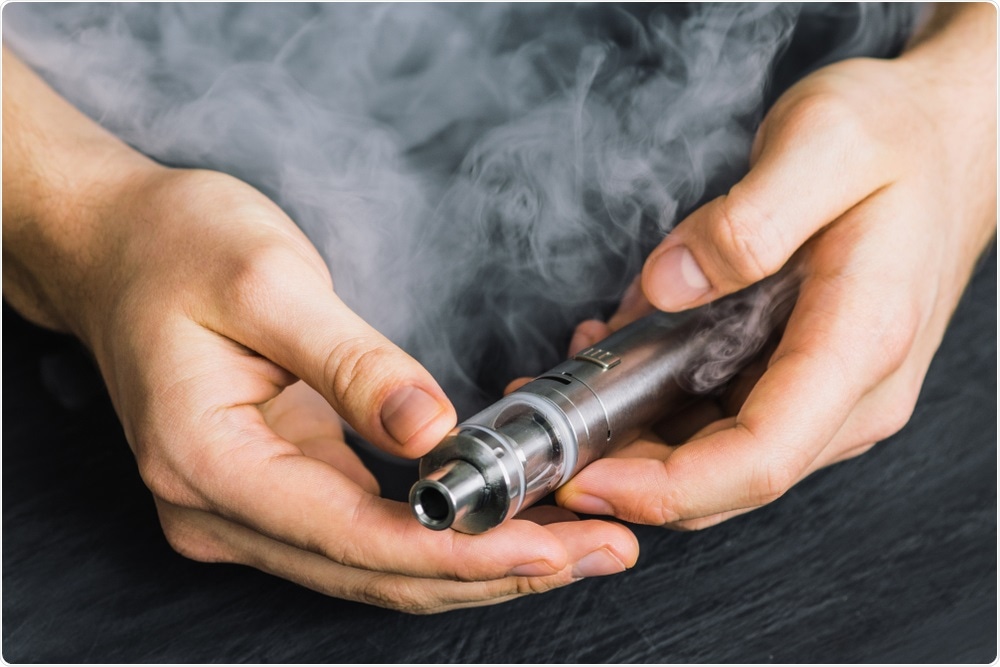Researchers at the University of Rochester Medical Center have found that using electronic cigarettes or “vaping” is associated with wheezing.

Shutterstock | Lifestyle discover
Study author Deborah Ossip and colleagues found that vapers were almost twice as likely to experience wheezing compared with people wo did not use the devices.
Wheezing is caused by abnormal or narrowed airways and is often a precursor to other health problems such as emphysema, lung cancer and sleep apnea.
Ossip says the study results support other research showing that vaping damages lung cells and inflames lung tissue.
"The take-home message is that electronic cigarettes are not safe when it comes to lung health. The changes we're seeing with vaping, both in laboratory experiments and studies of people who vape, are consistent with early signs of lung damage, which is very worrisome," she says.
Estimates from the National Center for Health Statistics show that almost 13% of adults in the US have tried vaping and almost 4% are current users. Although the devices are marketed as a safer alternative to smoking cigarettes, many people are concerned about the long-term health consequences.
As reported in the journal Tobacco Control, Ossip and team assessed data covering more than 28,000 adults in the US who participated in the Population Assessment of Tobacco and Health (PATH) study.
The study showed that participants who vaped were 1.7 times more likely to experience wheezing and difficulty breathing, compared with non-vapers.
Lead author Dongmei Li acknowledges that the study did have limitations such as the data being self-reported and excluding certain factors such as diet and physical activity levels.
However, senior author Irfan Rahman says the research still clearly identifies a health problem associated with vaping, which is a concern given the increase in uptake of the habit. A report from the Center for Disease Control and Prevention showed that in 2018, there was a 78% increase in uptake among ninth to 12th graders and a 48% increase among sixth to eighth graders.
Rahman is worried that the number of young people who choose to vape will only continue to increase and that serious health consequences such as loss of immunity, allergy and infection will follow.